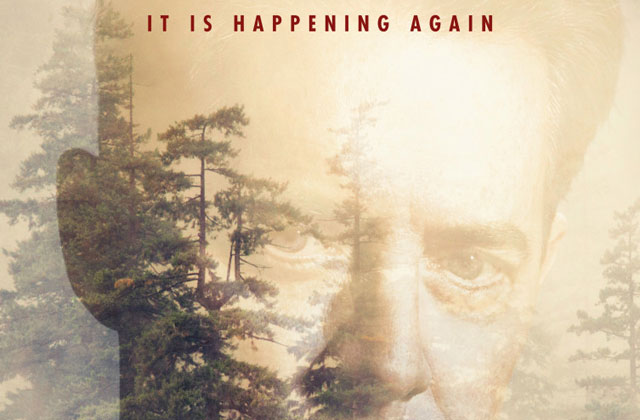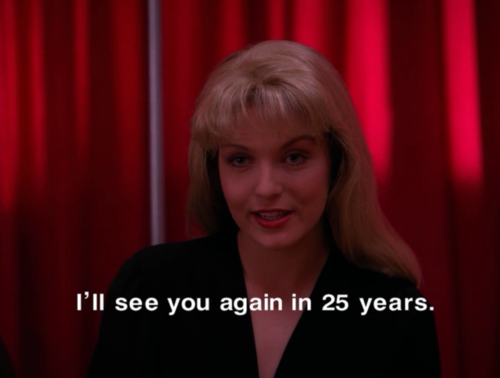David Lynch has been called many things: The Wizard of Weird, The Mayor of Oddville, Visionary, and even Eagle Scout from Missoula, Montana. All descriptions are, to an extent, accurate. However, one big thing Lynch did on April 8, 1990 was to change television by imprinting his skewed way of looking at the world upon a larger audience. He did this with his unique murder-mystery show, ”Twin Peaks.” On the surface, the story was about the murder of a revered small town high school girl, Laura Palmer. Laura is found wrapped in plastic on the banks of the town’s river. Her death creates much wailing and gnashing of teeth among her family, friends — and even one member of the police force. Indeed, it seems almost everyone in Twin Peaks is affected by Laura’s death, but it also catches the interest of the FBI – more specifically one agent, Dale Cooper (Kyle MacLachlan). Cooper is investigating a series of murders in the Northwest that seem to be committed by the same person. Sure enough, Cooper — with assistance of the town’s sheriff, Harry Truman — starts an investigation into the question that propelled the series: Who killed Laura Palmer?
This being David Lynch’s project, ”Twin Peaks” wasn’t a boilerplate murder-mystery. Instead Lynch delved into the quirkiness and strangeness of the town’s residents. The show also dovetailed into the realm of other dimensions — where spirits guide some characters in the material world to commit evil acts. Some of those acts include, rape, incest, and murder. Pretty heavy stuff for network TV back in 1990. But ABC took a chance on the show (mostly because they were at the bottom of the ratings game) and it paid off. People seemed intrigued by Lynch’s mix of horror and humor, grotesque and idiosyncratic, and tension and release. So much so, that 25 million people tuned in each week to watch “Twin Peaks” in its first season. The show’s death knell, alas, was when network executives pressured Lynch to reveal the killer early on — which Lynch thought was a terrible idea. He was right. Once we knew the answer to ”Who killed Laura Palmer,” the show veered off course into tangents that were just weird for weird’s sake.
Flash forward 25 year later, after two seasons and a feature film in 1992, and ”Twin Peaks” gets a another life on Showtime. There’s been a lot of secrecy surrounding the production of the show. Even the actors had no idea (beyond their lines and their scenes) what the overall plot was. Lynch knows that in our current age, it’s really difficult to keep plot secrets from leaking on the Internet, so it’s good that he was able to maintain that sense of mystery.
So, what has he wrought?
From the season premiere, it’s difficult to say because instead of starting with something tangible like the murder of a high school girl, he opts for a more diffuse beginning that doles out clues both visually and stylistically (backwards talking with subtitles is featured quite a bit). There are also a number of locations that go beyond the town of Twin Peaks. Indeed, we meet new characters in places South Dakota, Las Vegas, and New York City where both strange and menacing things happen. Agent Cooper is back playing two roles (one as the “good” Cooper, and the other as his doppelganger), we also get to visit with some of the Twin Peaks regulars like Lucy, Andy, Hawk, The Log Lady, Laura, Shelly, Ben, Jerry, and a few others who don’t do a hell of a lot to advance the plot. Indeed, much of ”Twin Peaks” is devoted to reuniting viewers with characters they haven’t seen in over two decades — while setting in slow motion events that will culminate into another battle between good and evil. Without giving away important details in the premiere, I have to say that as a fan of the series (and of Lynch’s work in general), I struggled with the first two episodes. There was a lot of style, a lot of weirdness, and a whole lot of nothing that transpired over the course of two hours. It’s okay for Lynch to take his time in telling this tale, but often the first two episodes just seem to be filling time. I’m hoping that he still has many tricks up his sleeve, so I’ll hold off detailing where, for me, the show just kind fell flat. However, knowing Lynch’s love of unconventional and scattered storytelling, it’s probably best just to buckle up and enjoy the ride for now.







Comments